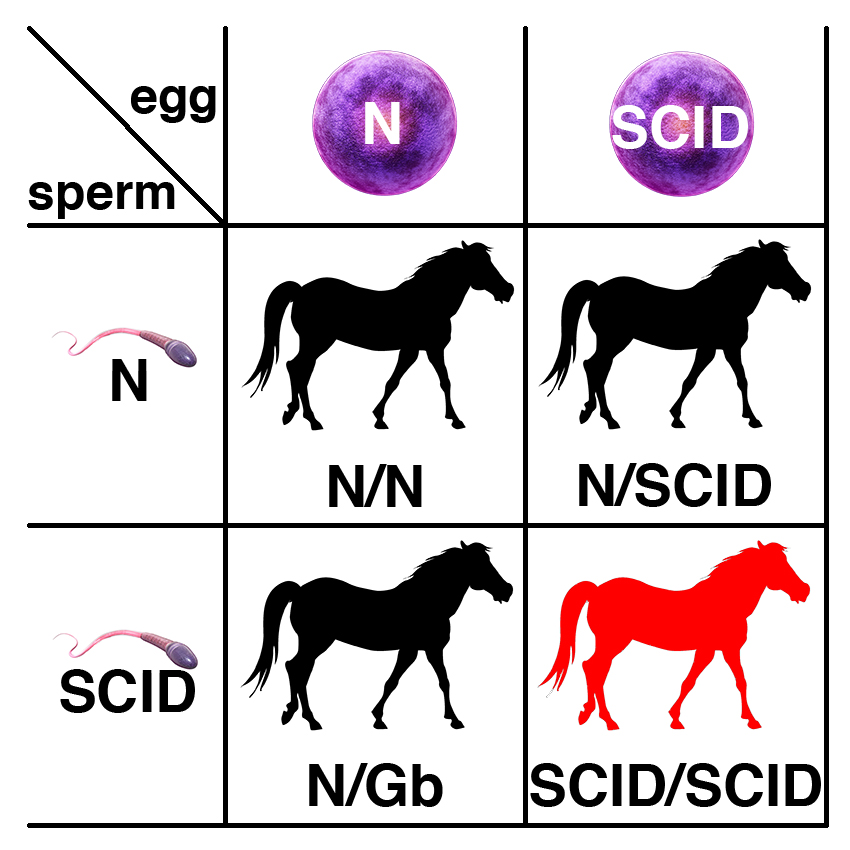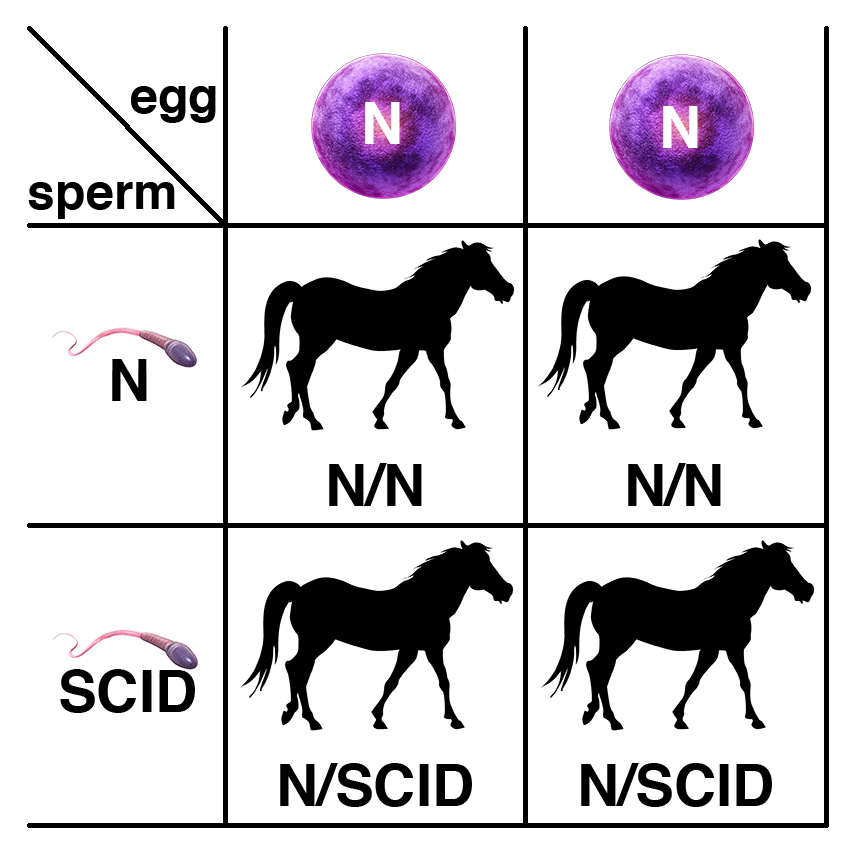| Contents |
|---|
| Severe Combined Immune Deficiency (SCID), Autosomal |
| Summary |
| Understanding the Results |
| Disease Name and Genes |
| Inheritance |
Severe Combined Immune Deficiency (SCID), Autosomal
Summary
Severe Combined Immune Deficiency (SCID) is an inherited defect of the immune system seen in Arabians. Horses with this condition are susceptible to infections shortly after birth, and typically die within six months. There is no effective treatment.
Date of Last Update: 08/02/2016
Results
Understanding the Results
Results of the genetic test for Severe Combined Immune Deficiency (SCID) are presented as shown below.
| Severe Combined Immune Deficiency (SCID) | ||
|---|---|---|
| N/N | Clear | This horse tested negative for SCID. |
| N/SCID | Carrier | Both the normal and mutant alleles are present. This horse is positive for the SCID mutation but will not develop symptoms. |
| SCID/SCID | Affected | This horse carries two copies of the SCID mutation and will die of the disease. |
Disease Name and Genes
Severe Combined Immune Deficiency (SCID) results from a five base deletion in the gene encoding the catalytic subunit of the DNA-dependent protein kinase (DNA-PKcs). The deletion causes a shift in the reading frame; three incorrect amino acids occur before a termination codon is reached at codon 3160. The frameshift mutation causes a 967 amino acid truncation, which deletes the binding domain for the Phosphoinositide 3-kinase (PI3K) protein. This results in a severe defect in V(D)J rearrangement, the mechanism used to form the coding region of Ig and TCR variable regions in the generation of antibody diversity.
Inheritance
Severe Combined Immune Deficiency (SCID) caused by a mutation in the DNA-PKcs gene is inherited as a recessive trait. The recessive allele is commonly abbreviated as SCID, with the dominant wild-type allele abbreviated as N.

Carriers of the recessive allele (N/SCID) have no symptoms of the disease. If two carriers are bred, each foal has a 25% chance of having two copies of the normal allele (N/N), a 50% chance of being a carrier (N/SCID), and a 25% chance of being affected (SCID/SCID).

If a carrier of the recessive allele (N/SCID) is bred to a normal horse (N/N), each foal has a 50% chance of having two copies of the normal allele (N/N) and a 50% chance of being a carrier (N/SCID).





